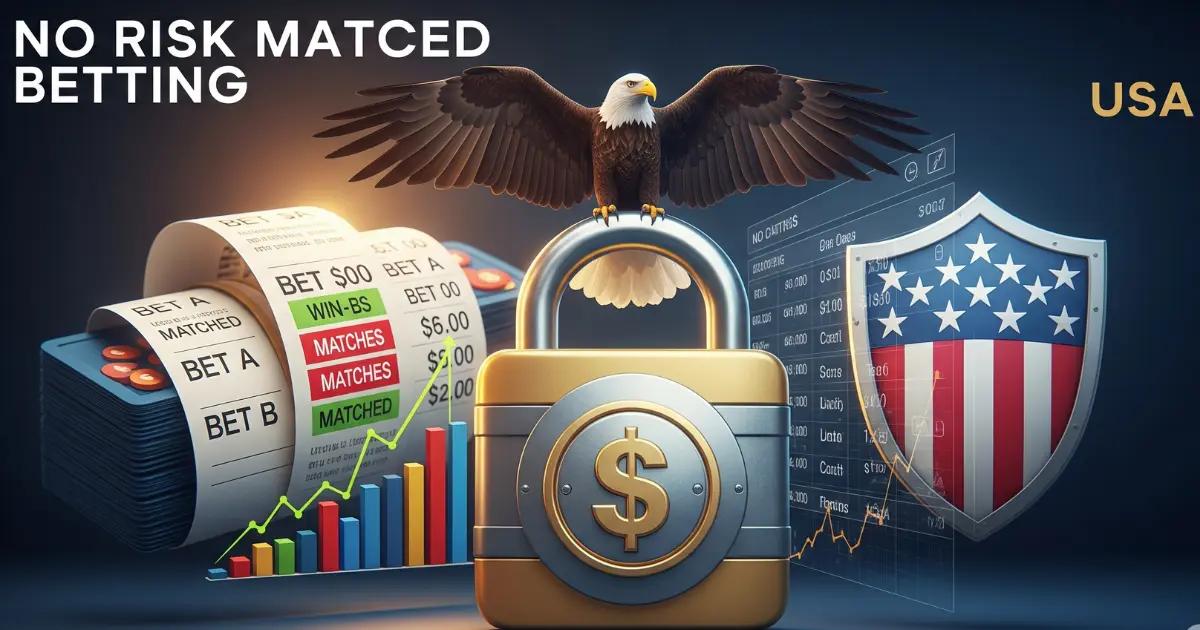
🎯 Key Takeaways
- ✓ Matched betting uses licensed sportsbooks and is permitted wherever sports betting is legal and regulated (now in 38+ U.S. jurisdictions). Always follow state rules and T&Cs.
- ✓ Average profit from welcome bonuses can reach $3,000–$5,000 across major sportsbooks, depending on your state count and limits.
- ✓ Profits may trigger Form W-2G thresholds and are taxable; you must report all gambling income to the IRS.
- ✓ New York, New Jersey, and Pennsylvania typically offer the broadest promo density and line-shopping opportunities.
- ✓ Use distinct bankroll tracking per sportsbook and maintain meticulous records for compliance and taxes.
Introduction
Having navigated matched betting across 15 U.S. states since the 2018 PASPA overturn, I’ve learned that the edge here isn’t luck—it’s logistics, line-shopping, and terms. My first “no sweat” bet in New Jersey (back when market promos were peaking) netted $950 in free-bet value I converted the same week—without sweating the outcome. For context: states began legalizing after the Supreme Court’s Murphy v. NCAA (2018) decision struck down PASPA, opening the door to today’s state-regulated markets.
Is No Risk Matched Betting Legal in the USA? State-by-State Breakdown
Short answer: matched betting is just a strategy that uses legal, licensed sportsbooks. If online sports betting is legal in your state and you follow the operator’s T&Cs, the activity is lawful. As of mid-2025, 38 states + Washington, D.C. have legalized sports betting (about 30 with full online), with the remainder either retail-only or not yet authorized. Always verify your state regulator’s site before you bet.
- Fully online in ~30 states (e.g., NY, NJ, PA, MI, CO). These offer the best promo density and line-shopping.
- Retail-only pockets exist; online matched betting won’t work there (you’d have to place both sides in person).
- Not yet legal online: large states like California and Texas remain holdouts as of 2025. Check a regulator map before planning any “state-hopping.”
"Compliance note: Use only licensed U.S. books in your state and obey each operator’s promotion terms. Offshore sites and VPN workarounds can violate law/T&Cs and jeopardize funds.
For New York specifically, the regulator lists nine licensed mobile operators—useful for competition and promo hunting.
Best US Sportsbooks for Matched Betting in 2025
From a matched-betting perspective, we value first-bet insurance / “no sweat” offers, clear bonus-bet rules (“stake not returned”), and breadth of markets:
- DraftKings — Frequent “No Sweat”/bonus-bet promos; transparent bonus-bet rules.
- FanDuel — Classic “Bet $X, Get $Y” or “No Sweat” constructs; official docs confirm bonus bets return winnings, not stake.
- BetMGM — “First Bet Offer” up to $1,500 appears regularly during peak seasons.
- Caesars — “First Bet on Caesars” style insurance and deep market menu.
- bet365 — Aggressive U.S. expansion; welcome values often competitive, now in ~14 states.
Top US Sportsbook Welcome Offers
"Values vary by state/date; always read the current T&Cs on the brand site before betting.
| Sportsbook | Bonus | Type | States | Rollover |
|---|---|---|---|---|
| DraftKings | $1,000 (typical ceiling) | No Sweat / Bonus Bets | 25+DC (approx.) | 1x |
| FanDuel | $1,000 (historical max) or $200 bet&get promos | No Sweat / Bet&Get | 23–26 (varies) | 1x |
| BetMGM | $1,500 | First Bet Offer | 20+ incl. DC (varies) | 1x |
| Caesars | $1,000 (typical ceiling) | First Bet on Caesars | 20+ (varies) | 1x |
| bet365 | $1,000 | Bet Safety Net / Bonus Bets | ≈14 | 1x |
How to Execute Your First Risk-Free Bet in America
Goal: convert a first-bet insurance or bonus-bet into cash with minimal variance.
- KYC & Geolocation: Register with a licensed book in your state; complete ID checks; enable location services.
- Claim the right offer: Pick a “no sweat/first bet” insurance or “bet & get” promo with low hoops. Confirm minimum odds, expiry, and refund type (bonus bets or credits). Bonus bets do not return stake; only winnings are paid.
- Place your qualifying bet: Choose a mainstream market with liquid odds (NFL/NBA moneyline or spread).
- Hedge the other side:
- If your state has many books, place the opposite side at a second licensed sportsbook to lock in most of the value.
- In New Jersey (and a few others), Sporttrade operates an exchange-style market you can use for precise hedges (currently active in NJ, CO, IA, AZ, VA—exchange mechanics mainly in NJ).
- Converting bonus bets: When refunded as bonus bets, remember “stake not returned.” Aim for +300 to +500 odds to optimize EV, then hedge the opposite side at another book/exchange.
- Track everything: Log offer terms, odds, stakes, and outcomes for tax time.
"Internal resource: New to the mechanics? See How Does No Risk Matched Betting Work? for a technical primer (we won’t repeat it here).
State-Specific Matched Betting Opportunities
- New York: Nine mobile books mean strong line-shopping and recurring promos, especially around NFL/NBA.
- New Jersey: Mature market with deep operator choice and the only exchange-style marketplace (Sporttrade) functioning like an exchange; useful for tight hedging.
- Pennsylvania & Michigan: Broad operator mix; frequent seasonal “bet & get” and SGP boosts that pair well with hedges.
- Colorado & Ohio: Competitive, odds-boost heavy books create regular arbitrage-adjacent spots.
"For the latest legalization/market status, confirm with the American Gaming Association map and your state gaming commission before planning a promo run.
State Legality Status
| State | Legal | Online | Books | Best Offer |
|---|---|---|---|---|
| New York | Yes | Yes | 9 | FanDuel $200–$1,000 (varies) |
| New Jersey | Yes | Yes | 20+ | DraftKings/FanDuel $200–$1,000 |
| Pennsylvania | Yes | Yes | 10–14 | BetMGM $1,500 (periodic) |
| California | No | No | 0 | N/A |
| Texas | No | No | 0 | N/A |
Tax Implications for US Matched Bettors
- All gambling winnings are taxable. You must report them on your federal return—even if you don’t receive a W-2G.
- Form W-2G thresholds: For sports betting, a payer generally issues W-2G at $600+ and 300× the wager (other thresholds apply for slots/keno/poker). This is a reporting threshold for payers, not a tax-free amount for you.
- Losses: You may deduct gambling losses up to winnings if you itemize and keep records. Consult a tax professional for multi-state filing.
"Disclaimer: This is education, not tax advice.
Common Pitfalls and Pro Tips for American Matched Bettors
Pitfalls
- Misreading “bonus bets” (stake not returned) and over-staking low odds.
- Violating promo T&Cs (duplicate accounts, proxy betting). Most books limit one new-customer promo per person/household—sometimes language is “limit one per person.”
- Trying to use VPNs or offshore books (risking funds & accounts).
Pro Tips
- Prioritize competitive lines, not just big headlines.
- Keep stakes natural; mix in occasional “mug” bets to look like a regular bettor.
- Maintain a single identity per brand nationwide; if you travel, the same account typically works across legal states, but new-customer offers are usually one-per-brand, not one-per-state. Always check current T&Cs.
- Use spreadsheets to track EV, expiry dates, and tax records.
"Internal resource: For a risk framing primer, see Matched Betting vs Casino Gambling
"Responsible Gambling: If betting stops being fun, contact the National Council on Problem Gambling helpline 1-800-522-4700 or 1-800-GAMBLER for support.
Conclusion
Since Murphy v. NCAA (2018), the U.S. market has evolved into a patchwork that savvy bettors can navigate for repeatable, low-variance value—so long as you treat matched betting like a compliance exercise first and a profit engine second. If you stick to licensed books, respect T&Cs, and track every dollar, no risk matched betting USA can be systematic, not stressful. If it stops being fun, call 1-800-522-4700.



